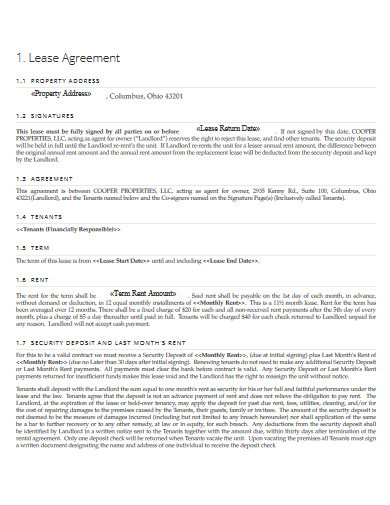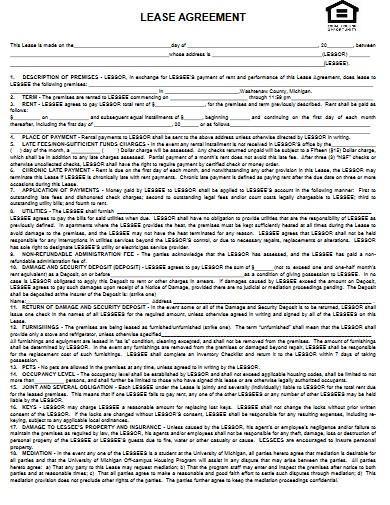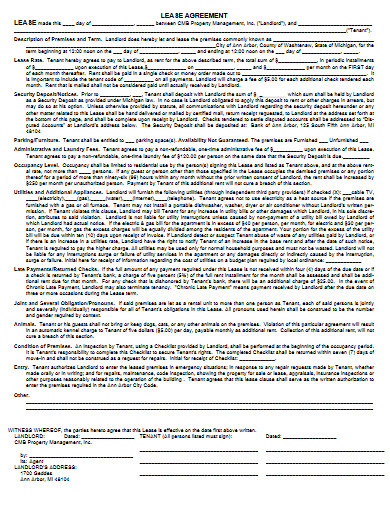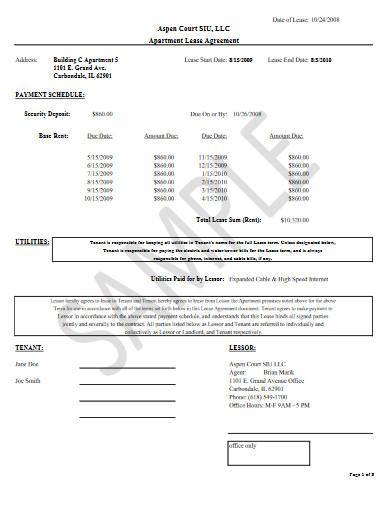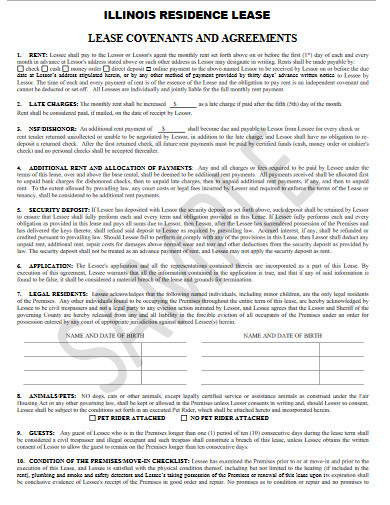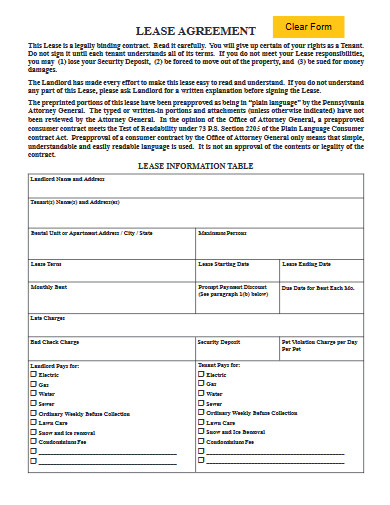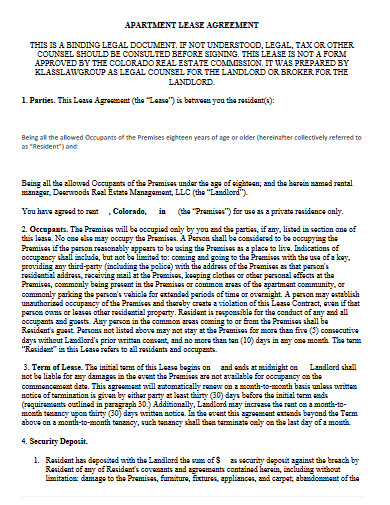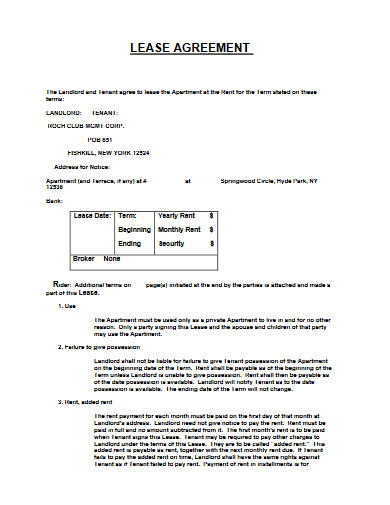10+ Apartment Lease Agreement Examples to Download
The contract term and monthly rent are set in stone and cannot be adjusted. It means that the landlord cannot lift the rent and that the occupant cannot simply abandon the property anytime they wish without consequence. The lease arrangement is in place for the period specified in the agreement. If the renters want to stay in the house, they have to sign a new lease agreement. In this case, the owner is not obliged to extend an existing lease and is entitled to change the terms and rental sums if he or she desires. As a result, some renters tend to sign a longer-term lease if the monthly rent is low.
However, if you lack an idea about the lease agreement template, the following can help.
10+ Apartment Lease Agreement Examples
1. Apartment Lease Agreement Template
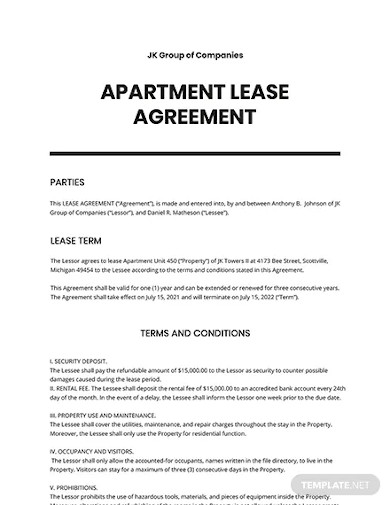
2. Sample Apartment Lease Agreement
3. Apartment Lease Agreement Example
4. Simple Apartment Lease Agreement
5. Apartment Lease Agreement
6. Residential Apartment Lease Agreement
7. Basic Apartment Lease Agreement
8. Apartment Lease Agreement in PDF
9. Printable Apartment Lease Agreement
10. Apartment Lease Agreement Format
11. Apartment Lease Agreement Sample
What Is an Apartment Lease Agreement?
An apartment for lease is somewhat similar to an apartment for rent. The lease is a legal agreement between the landlord and the occupant. It should specify all the limitations to let the occupants rent and respect the landlord’s obligations. However, before you sign a leasing agreement for an apartment, consider the following issues.
- Lease Period
- Payment of Lease
- Occupancy in an Apartment
- Additional Leasing Details
How to Create a Lease Agreement?
A written leasing arrangement is one of the safest ways to secure your rights as a landlord. A well-drafted leasing arrangement will be the difference between getting stuck with a problematic tenant and being able to defend the property by lawful means. Before signing a leasing agreement like this, consult with an attorney specializing in landlord/tenant law. In a variety of cases, a lawyer may support you in assessing your legal rights.
Here are five pointers to keep in mind when you draft your lease agreement to ensure that you and your property are protected:
Understand the Law
Each state and some cities has its own set of laws governing property management and landlord-tenant rights. Before you write your leasing agreement, familiarize yourself with these rules. It will help you understand what you can and cannot have in a contract.
Be Concise
Confusing words and a poorly drafted contract may be misunderstood and do not stand up in court. Make the stipulations as simple as possible, and clarify something that might create misunderstanding.
Confirm the Condition of Your Unit
As a business owner, note that the contract should state that the unit is in good working order and free of harm or issues.
State the Amount Clearly
In your leasing agreement, provide the price you would charge for rent, as well as any deposit amounts. Indicate when the rent is due and when it is late. It can help eliminate misunderstandings and provide you with legal remedies if the occupant is regularly late.
Indicate the Activity Restrictions
Include the code of ethics with your rental agreement if you have one. Add conditions to your rental agreement if, for example, you don’t like loud music after a specific period or have other restrictions. It would give the renters a good understanding of what they can and can’t do. Also, protect your rights if they don’t obey your rules.
FAQs:
What’s the difference between a contract and a rental agreement?
A contract is only one way to rent a place legally. A rent arrangement can be a lease or a license. However, it only depends on the terms and conditions in the agreement. Also, on the duration specified.
Can you write your lease agreement?
A lease can be in a written or verbal form. But enforcing a verbal lease can be challenging. Most leases are reasonably standard and cover essential elements such as rent number, lease period duration, each party’s obligations, and fines for not adhering to the terms.
What makes a lease invalid?
A lease is a legal agreement. It’s a formal arrangement applied against both parties that sign the paper. A contract, like any other legal document, must be drafted in compliance with the statute. A lease can be invalid if it does not follow the letter of the law. A lease will not be valid at the behest of the defrauded party under some cases, such as theft.
If you’re a seasoned or first-time landlord, these templates and guidelines above will help you understand what the law means about leases and rental contracts. They can help you in running your rental business smoothly, safely, and effectively. Feel free to download them now!



